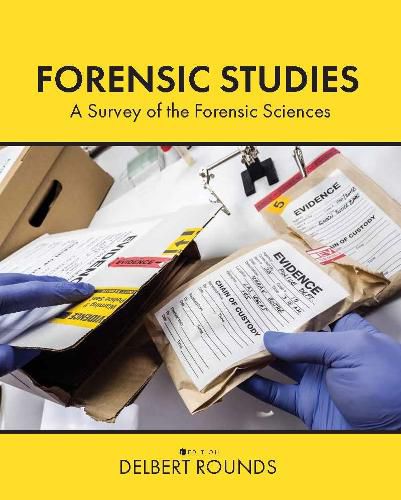Readings Newsletter
Become a Readings Member to make your shopping experience even easier.
Sign in or sign up for free!
You’re not far away from qualifying for FREE standard shipping within Australia
You’ve qualified for FREE standard shipping within Australia
The cart is loading…






This title is printed to order. This book may have been self-published. If so, we cannot guarantee the quality of the content. In the main most books will have gone through the editing process however some may not. We therefore suggest that you be aware of this before ordering this book. If in doubt check either the author or publisher’s details as we are unable to accept any returns unless they are faulty. Please contact us if you have any questions.
The Forensic Studies Anthology provides students with highly valuable, class-tested readings that introduce them to forensic studies and underscore the importance of forensic evidence within the criminal justice system.
The anthology features 12 chapters divided into three major parts. Unit I focuses on forensic thinking and the skills forensic scientists must possess to be successful in the field. These readings speak to the importance of preserving and recording evidence, the dangers of individualization fallacy, and how critical it is for politicians and leaders to invest in science and forensics to support the investigation and solving of crimes.
In Unit II, students read articles about technology and science. They learn about the use of mobile data in criminal investigations, video forensics, forensic dentistry, and the careers of histotechnicians, who specialize in preparing biological slides for examination.
The final section is focused on improving forensics and includes readings that discuss digital evidence, balancing fairness in cases involving DNA, post-conviction remedies, and using a logical framework in DNA cases, with the Amanda Knox case serving as an example.
Designed to inspire critical thought and ethical practice, The Forensics Studies Anthology is an ideal supplementary resource for foundational courses in forensics, criminal justice, and criminology.
$9.00 standard shipping within Australia
FREE standard shipping within Australia for orders over $100.00
Express & International shipping calculated at checkout
This title is printed to order. This book may have been self-published. If so, we cannot guarantee the quality of the content. In the main most books will have gone through the editing process however some may not. We therefore suggest that you be aware of this before ordering this book. If in doubt check either the author or publisher’s details as we are unable to accept any returns unless they are faulty. Please contact us if you have any questions.
The Forensic Studies Anthology provides students with highly valuable, class-tested readings that introduce them to forensic studies and underscore the importance of forensic evidence within the criminal justice system.
The anthology features 12 chapters divided into three major parts. Unit I focuses on forensic thinking and the skills forensic scientists must possess to be successful in the field. These readings speak to the importance of preserving and recording evidence, the dangers of individualization fallacy, and how critical it is for politicians and leaders to invest in science and forensics to support the investigation and solving of crimes.
In Unit II, students read articles about technology and science. They learn about the use of mobile data in criminal investigations, video forensics, forensic dentistry, and the careers of histotechnicians, who specialize in preparing biological slides for examination.
The final section is focused on improving forensics and includes readings that discuss digital evidence, balancing fairness in cases involving DNA, post-conviction remedies, and using a logical framework in DNA cases, with the Amanda Knox case serving as an example.
Designed to inspire critical thought and ethical practice, The Forensics Studies Anthology is an ideal supplementary resource for foundational courses in forensics, criminal justice, and criminology.